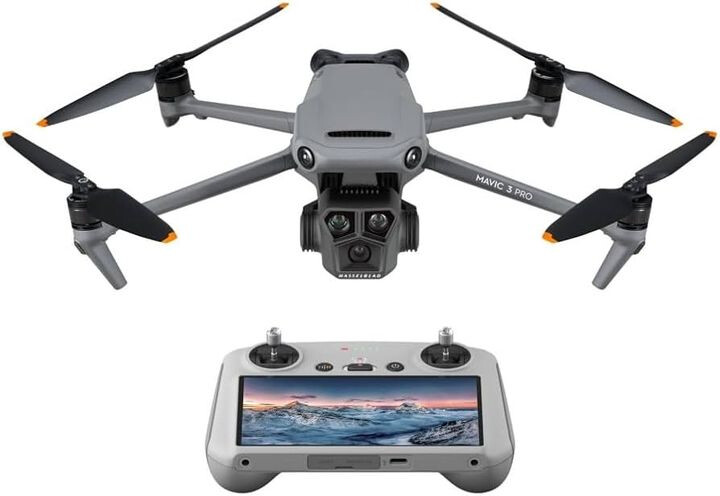
Washington D.C. – The White House is reportedly preparing a series of executive orders that would effectively prohibit the sale of Chinese-made drones within the United States, as reported by The Washington Post on May 30th. These anticipated orders, which President Donald Trump is expected to sign as early as next week, aim to bolster investment in the American drone industry, which has struggled to compete with Chinese manufacturers on price. The impending directives are also expected to include revisions to federal regulations, redefining permissible flight zones for commercial drones following recent incidents of unauthorized intrusions over U.S. military installations.
These executive actions specifically target small commercial drones, not large military unmanned aerial vehicles. The escalating proliferation of Chinese-made drones in the U.S. has triggered significant national security concerns, with some politicians advocating for a complete ban. The executive orders will direct U.S. intelligence agencies to swiftly assess whether Chinese drone manufacturers, such as DJI and Autel, pose a national security threat. If these companies are determined to be a security risk, the sale of their products within the United States would become virtually impossible.
American drone manufacturers, despite their technological advancements, have consistently faced intense price competition from their Chinese counterparts. DJI, in particular, has achieved a near-monopoly in the U.S. market, with its drones widely adopted for a range of applications, from beginner-level use to specialized professional fields like the oil and gas industry and search and rescue operations.
The forthcoming executive orders are also expected to outline more proactive federal government support for American drone manufacturers. Furthermore, they will reportedly include provisions to ease regulations on commercial drone operations, such as allowing beyond visual line of sight (BVLOS) flights. The directives will also empower the Federal Aviation Administration (FAA) with the authority to request flight restrictions over private facilities, including railroads, oil refineries, and amusement parks.
This comprehensive set of measures aligns with the Trump administration's broader hardline stance on China. The U.S. Department of Defense previously prohibited the military use of Chinese drones in 2018. However, DJI drones remain widely utilized across various sectors in the United States, including by police departments, emergency rescue services, and the insurance industry, highlighting their pervasive presence in critical American infrastructure and operations.
The move underscores a growing bipartisan consensus in Washington regarding the perceived risks associated with foreign-made technology, particularly from countries deemed geopolitical rivals. While the immediate focus is on drones, analysts suggest this could be a precursor to similar actions targeting other Chinese technological products and services. The administration's rationale hinges on the potential for data exfiltration, espionage, or even sabotage through devices controlled by foreign entities. Critics of Chinese drone manufacturers often point to China's National Intelligence Law, which mandates that Chinese organizations and citizens support and cooperate with state intelligence work, raising concerns about potential backdoors or forced data sharing.
The economic implications of such a ban are substantial. For consumers and businesses accustomed to the affordability and robust features of Chinese drones, the transition to potentially more expensive American alternatives could be challenging. The competitive landscape within the U.S. drone market is poised for a significant reshuffle. While some American companies stand to gain from increased domestic demand and government incentives, the overall supply chain and innovation cycle could be impacted in the short term. The administration's hope is that this will stimulate a robust domestic drone ecosystem, fostering innovation and creating jobs within the U.S.
The technical complexities of enforcing such a ban are also considerable. Identifying the origin of drone components and software, as well as preventing circumvention through third-party distributors or rebranded products, will require sophisticated regulatory frameworks and enforcement mechanisms. The intelligence agencies' assessment period will be critical in determining the scope and feasibility of these measures.
Beyond national security, the executive orders also touch upon evolving drone regulations for public safety and infrastructure protection. The FAA's expanded authority to restrict flights over sensitive private facilities acknowledges the increasing deployment of drones for recreational and commercial purposes and the need to balance their utility with potential risks to privacy, security, and critical infrastructure. The allowance for BVLOS operations, a long-sought-after capability by commercial drone operators, could unlock new applications and efficiencies across various industries, from logistics and agriculture to infrastructure inspection. However, it also necessitates advanced safety protocols and robust air traffic management systems to prevent collisions and ensure airspace integrity.
This bold step by the White House signifies a pivotal moment in the ongoing technological and economic competition between the U.S. and China. It reflects a strategic effort to reassert American technological leadership and mitigate perceived national security vulnerabilities stemming from reliance on foreign technology. The coming weeks will reveal the full scope and impact of these executive orders on the drone industry and the broader U.S.-China relationship.
[Copyright (c) Global Economic Times. All Rights Reserved.]





























